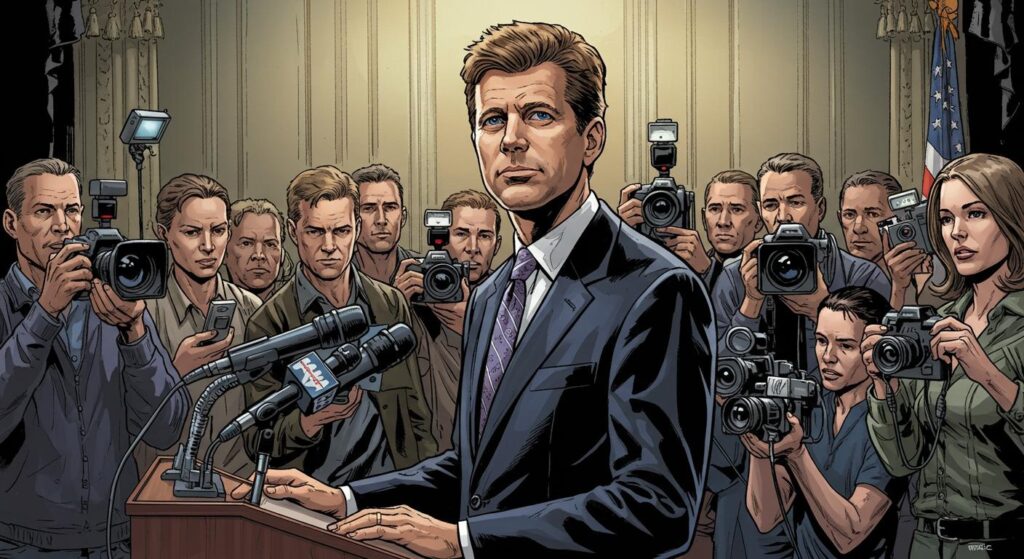The phrase “too attractive to keep your job” sounds like fodder for internet urban legend, not the North Star for legal precedent. Yet, as chronicled by Thar Tribune, Iowa’s Supreme Court agreed that “fired for being distracting” is a justifiable reason—so long as it’s more about your boss’s inability to focus than your own conduct.
It’s one of those stories you keep expecting to veer into satire, but the punchline never lands.
The Curious Case of Melissa Nelson
Picture this: Melissa Nelson, 10 years into a faultless run as a dental assistant, is called into her boss’s office. She’s met not by an HR rep or a manager, but by Dr. James Knight and a church pastor, according to Thar Tribune’s investigation into the particulars. Nelson’s record was spotless. Dr. Knight even referred to her as “the best dental assistant” he’d ever hired—hardly the profile of an employee on shaky ground.
Yet, the real cause for dismissal wasn’t work performance. The article highlights that after Dr. Knight’s wife discovered text conversations—ranging from the mundane to the unmistakably questionable—Melissa was summarily dismissed. There were no warnings, no complaints, just a consensus (with the pastor serving as ad hoc HR consultant) that her continued employment presented a marital risk.
Court records and accounts described by Thar Tribune indicate there was no formal corporate process. Nelson, maintaining she had done nothing inappropriate, was terminated because Dr. Knight feared his own potential future behavior. How often does one see “preemptive temptation avoidance” listed in a termination letter?
Not Harassment… Just “Temptation”
The legal dimension is even more curious. The outlet details how Nelson didn’t allege sexual harassment, focusing her lawsuit on gender discrimination. Here, the court’s logic pivots in a way that deserves a slow reread. Since Dr. Knight hadn’t terminated all women, just one specific woman who, as he put it, was a “threat” to his marriage, the Iowa Supreme Court ruled that this didn’t amount to discrimination against women as a class. They cited federal precedent allowing similar firings for “personal relationships,” noted by the Tribune, suggesting that if an employer’s motivation is unique to an individual’s role in their personal life—no matter how questionable—the law stands aside.
The justices even acknowledged the outright unfairness. Still, as explained in Thar Tribune’s summary of the case, they determined the law’s parameters didn’t stretch to cover this brand of injustice. Would a hypothetical firing based on someone’s predicted impact on a boss’s willpower clear the same legal bar in other workplaces? Under this ruling: apparently, yes.
Bizarrely Optional HR
The unusual handling of this case stands out. Rather than any codified process, Melissa Nelson’s fate was decided in a room with a pastor and a prepared statement, as described by Thar Tribune. With no HR, no formal process, and no misconduct on record, she was handed severance and an explanation that the problem was not her actions, but the mere potential for unacted-upon attraction. The reporting highlights the lopsided power dynamic—one boss, his wife, and church intermediaries—leaving employees essentially at the mercy of personal anxieties rather than workplace guidelines.
What’s the message for other workplaces: beware being excellent and visible? The article leaves that question hanging in the air. How often do dress codes, workplace relationships, and “distracting” personalities serve as the silent subtext in dismissal decisions?
Fairness ≠ Legality
Referring to a wave of disbelief among lawyers, workplace equality advocates, and HR observers, Thar Tribune notes that public reaction to this ruling was predictably incredulous. The moment the story broke, headlines across major media questioned whether “being too attractive” had officially entered the small print of fireable offenses. The legal fine print, it seems, can be a loophole big enough for some outdated logic to walk through.
The outlet also explored the broader implications: how does this ruling affect women navigating workplaces where their own professionalism may be rendered moot by someone else’s inability to maintain boundaries? Is it enough for courts to say, “unfair, but not illegal”? The lasting takeaway here isn’t just this one odd dental office—it’s how subtle, personal discomfort can be elevated above individual rights when law and common sense fall out of sync.
File Under: Unintentional Consequences
Is this a roadmap for awkward terminations elsewhere? The article raises the possibility that as long as the explanation is sufficiently personal—“my wife feels threatened,” “I can’t concentrate”—unusual dismissals may be given legal cover. Thar Tribune points out the disturbing precedent: Nelson wasn’t fired for doing something wrong, but for inspiring a hypothetical concern. Your very existence, apparently, can be a calculated risk if your boss deems it so.
Is there any other scenario where such logic would prevail? Picture the IT guy let go for “distracting playlists,” or a barista dismissed over “charisma surges.” The underlying question is whether the law’s allergy to emotional nuance has become a protective shield for employers rather than employees.
The Uncomfortable Legacy
The Tribune’s reporting notes that despite a backlash, appeals to broader justice didn’t move the dial. Iowa’s laws didn’t change, and the ruling stands as a touchstone in HR seminars and legal symposia for the still-murky definitions of discrimination. It’s a favorite for employment lawyers when demonstrating how “personal bias” can slip through the cracks if the legal standard hasn’t caught up with reality.
People are left wondering: if a dentist can fire an employee because he fears his own hypothetical impulses, who else is vulnerable when “temptation” becomes a pink slip criterion? Is it possible to feel safe at work when your best efforts can be undone by someone else’s anxieties? As raised in Thar Tribune’s closing reflections, when fairness isn’t spelled out by law, whose definition survives?
Ultimately, this case is a kind of quiet parable about American workplaces: sometimes, the oddest stories aren’t urban legends—they’re just written into the court record, complete with a severance envelope and a nod from your boss’s pastor. Is there a legal defense for letting someone go because you can’t trust yourself? In Iowa, at least, the answer seems to be yes. If that’s the precedent, what lines can employees truly count on?







